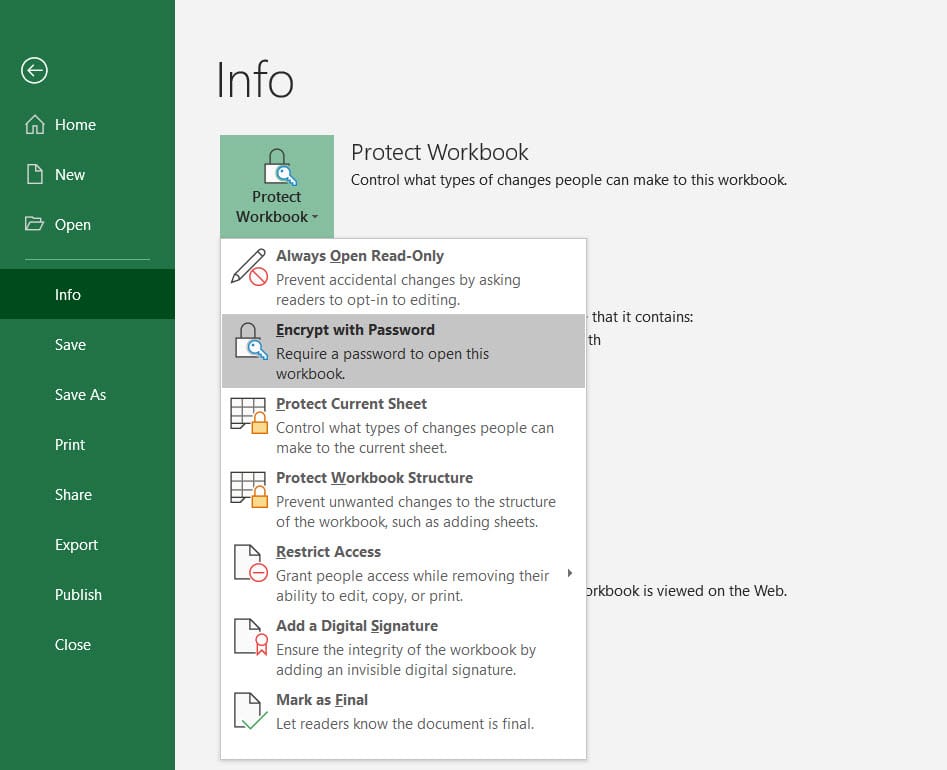5 Quick Steps to Remove Excel Passwords Easily

Why Password Protect an Excel Workbook?

Password protection is an essential feature in Microsoft Excel for safeguarding sensitive data. Here are several reasons why someone might want to password protect their Excel workbook:
- Data Security: Protecting financial data, personal information, or any confidential data from unauthorized access.
- Compliance: Adhering to data protection regulations like GDPR or HIPAA by restricting access to certain data sets.
- Workflows: Controlling who can view or edit spreadsheets to manage collaborative environments effectively.
However, there might come a time when you need to remove these passwords, whether you've forgotten the password, need to share the file without restrictions, or simply because the need for protection no longer exists. Here's how you can remove Excel passwords easily.
Step-by-Step Guide to Remove Excel Passwords

Step 1: Save a Backup

Before attempting any modifications to your Excel workbook:
- Save a copy of your file with a different name.
- Ensure this backup is in a secure location.
Keeping a backup is crucial, as there is always a risk of unintended data corruption or loss.
Step 2: Use Password Recovery Software

If you’ve forgotten the password, consider using reliable password recovery software such as Passper for Excel. Here’s how to proceed:
- Download and install Passper for Excel from the official website.
- Launch the software and select the “Remove Restrictions” option.
- Open your protected Excel file within the program.
- Choose the password removal method: either instant removal or advanced recovery.
- Press the “Start” button to initiate the process.
- Once the password is removed, you will be notified, and you can then open the workbook without restrictions.
This method is particularly useful when you need to access the workbook without knowing the password.
Step 3: Manual Password Removal

If you know the current password, here’s how to remove it manually:
- Open your password-protected Excel file.
- Go to the “File” tab.
- Click on “Info” and then select “Protect Workbook”.
- Under this menu, click on “Encrypt with Password”.
- Remove the existing password by leaving the password field blank, then click “OK”.
- Save the workbook to apply changes.
This method is straightforward and ensures no extra software or online services are needed.
Step 4: Protect Your Workbook Again

After removing the password, you might want to reapply protection if necessary:
- Go back to the “File” tab and choose “Protect Workbook”.
- Select “Encrypt with Password”.
- Enter a new, strong password or re-enter the original password if you’re re-securing it.
- Ensure you confirm the password and save the workbook.
This step is optional but advisable if the workbook’s sensitive content still requires protection.
Step 5: Verify and Test

After removing or changing passwords:
- Close the workbook and reopen it to ensure the password has been removed or changed.
- Check any macros or features that may depend on password protection.
Verification is key to ensure that the workbook functions as expected post-password removal.
⚠️ Note: Password removal should be done responsibly. Ensure you have the right to remove passwords and that you comply with data security and privacy regulations.
In summary, Excel password removal can be a straightforward process if you follow these steps. From backing up your file to using software for password recovery or manually removing it, you now have the tools to manage Excel passwords effectively. Remember to always verify that the workbook functions correctly after modifying passwords, and consider reapplying protection where necessary to maintain data integrity and security.
What if I don’t have the password?

+
If you’ve forgotten the password, using password recovery software like Passper for Excel is your best option. Alternatively, you can try to recover the password through any notes or documents where you might have stored it.
Is it safe to use password recovery software?

+
Reputable password recovery software is generally safe to use. Ensure you download it from the official or a trusted source to avoid malware or data breaches.
Can I remove the password from an Excel file if I’m not the owner?

+
Removing passwords from an Excel file without the owner’s consent can be unethical and potentially illegal, especially if the file contains sensitive information.



